Afghan Voices
Set amid Afghanistan’s political turmoil of the late twentieth century, A Thousand Splendid Suns chronicles the lives of Mariam and Laila as they face community upheaval and domestic violence. But it is only one story. Afghanistan has millions more. Through a series of interviews Afghan Voices presents a few others, capturing the experiences of Afghans who have lived in the US for years as well as those who have just recently arrived.
To read their full interview, click on the photograph.
-
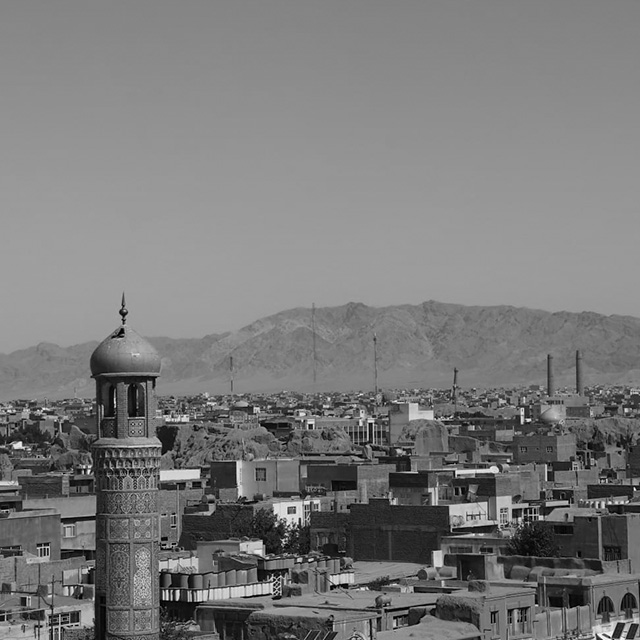
Fahim Omid
From: Kabul, Afghanistan
US Arrival: 2021
Currently Lives: Kent, Washington
-
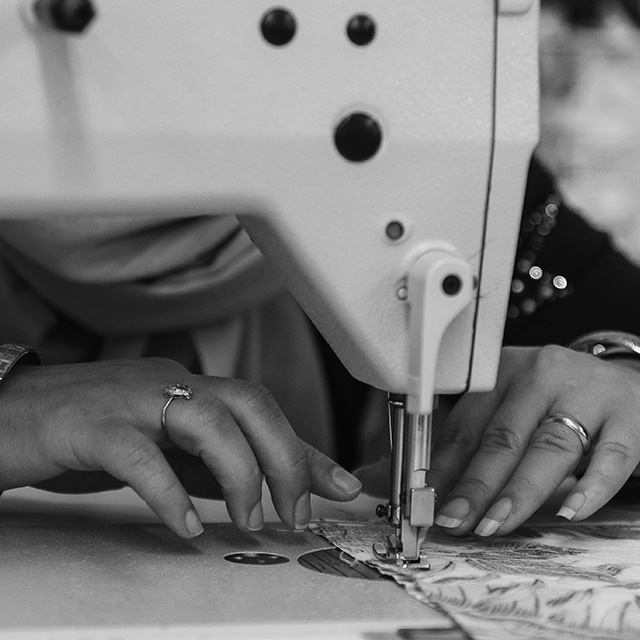
Nazeefah Salim
From: Maiden Wardek, Afghanistan
US Arrival: 2003
Currently Lives: Seattle, Washington
Occupation: Artist, Refugee Artisan Initiative
-
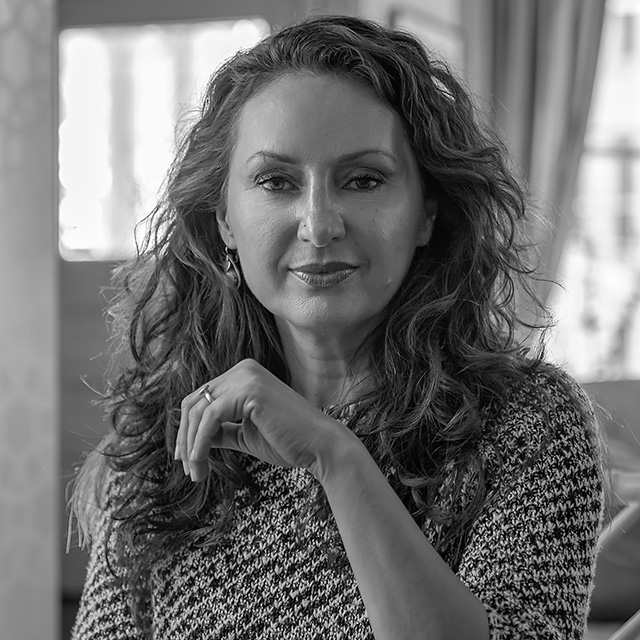
Humaira Ghilzai
From: Kabul, Afghanistan
US Arrival: 1978
Currently Lives: San Francisco Bay Area, California
Occupation: Writer, Afghan Cultural Consultant
-
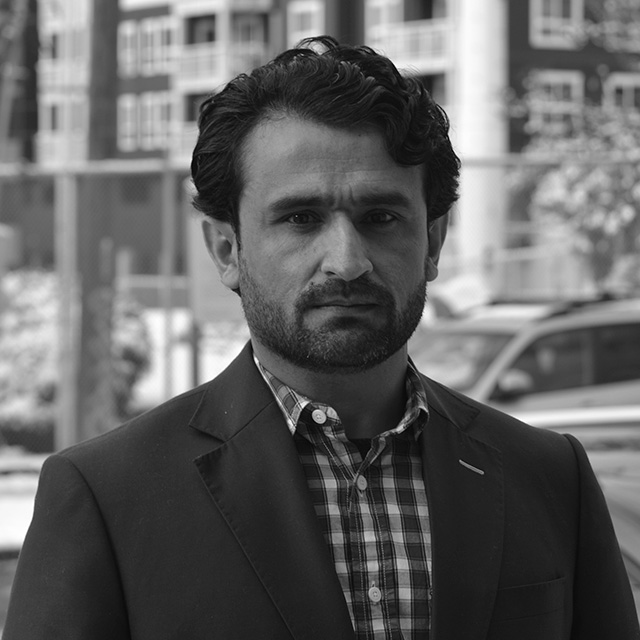
Mohammad Iqbal Selanee
From: Kunar Province, Afghanistan
US Arrival: August 27, 2021
Currently Lives: Bellevue, Washington
Occupation: Language Interpreter
-
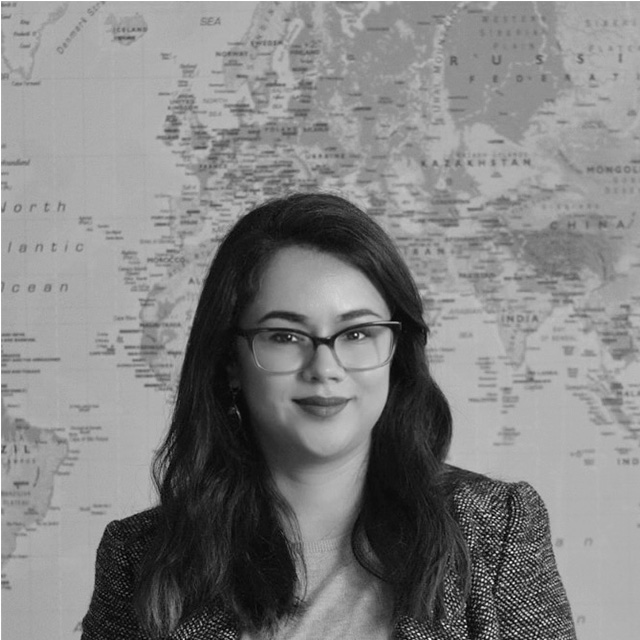
Shogofa Amini
From: Mazar-e-Sharif, Afghanistan
US Arrival: 2010
Currently Lives: Seattle, Washington
Occupation: Nonprofit Program Manager
-
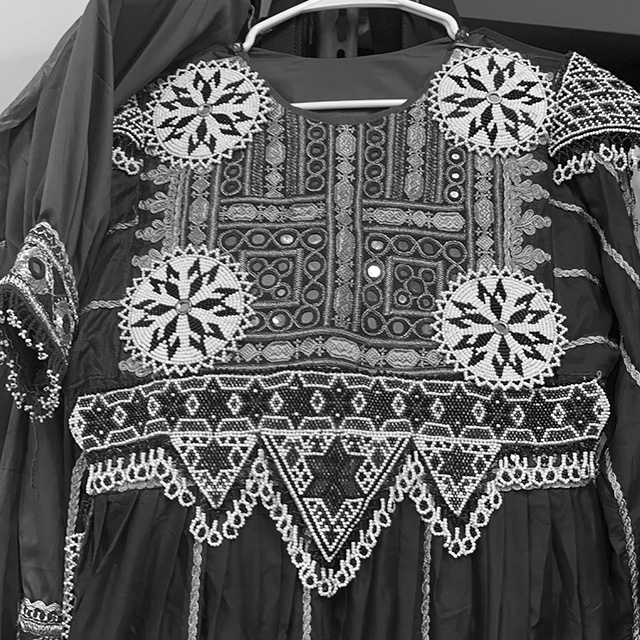
Rezma Omid
From: Kabul, Afghanistan
US Arrival: 2021
Currently Lives: Kent, Washington
Occupation: Artist, Refugee Artisan Initiative
-
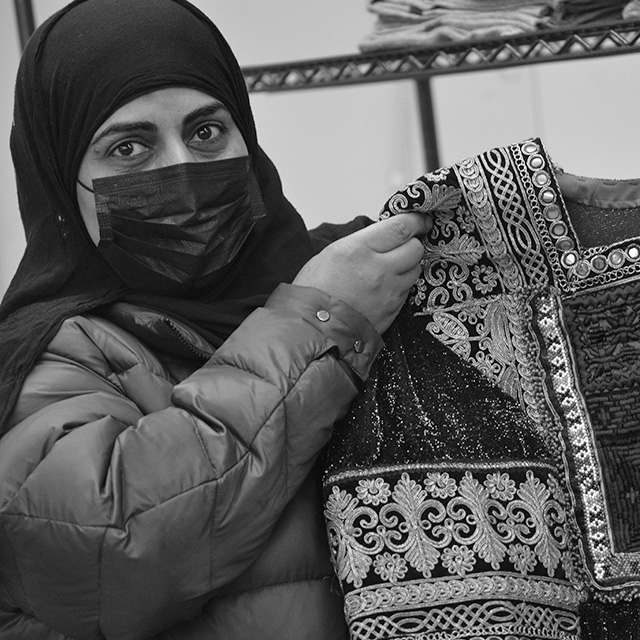
Basheera Salim
From: Maiden Wardak, Afghanistan
US Arrival: 2003
Currently Lives: Seattle, Washington
Occupation: Artist, Refugee Artisan Initiative
-
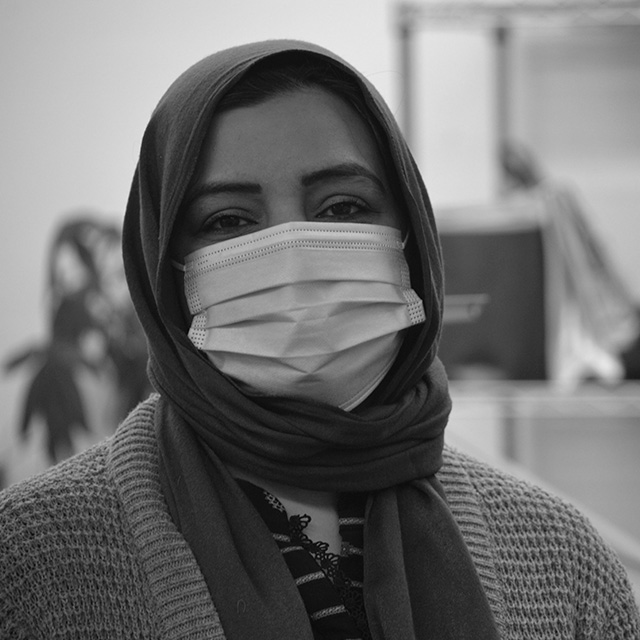
Mehnaz Gohar
From: Peshawar, Pakistan
US Arrival: 2018
Currently Lives: Seattle, Washington
Occupation: Artist, Refugee Artisan Initiative
-
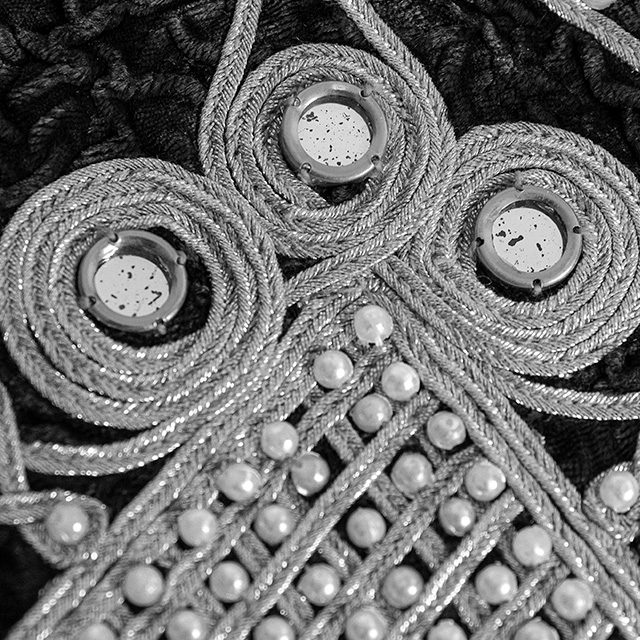
Parwana
From: Kandahar, Afghanistan
US Arrival: 2016
Currently Lives: Seattle, Washington
Occupation: Artist, Refugee Artisan Initiative
-
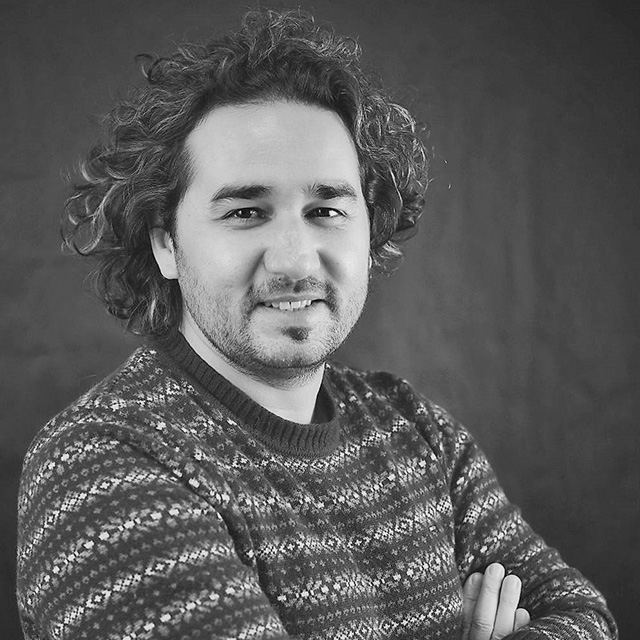
Omaid Sharifi
From: Kabul, Afghanistan
US Arrival: August 15, 2021
Currently Lives: Northern Virginia
Occupation: Founder of ArtLords
Fahim Omid
HOW WOULD YOU DESCRIBE AFGHANISTAN TO SOMEONE WHO HAS NOT BEEN THERE?
Afghanistan is a large country and diverse place. We have mountains and deserts. Afghans are very diverse people who are generous.
WHAT DO YOU MISS MOST ABOUT AFGHANISTAN?
I miss the people and the food. I miss my life there. All of it.
UNDER WHAT CIRCUMSTANCES DID YOU ARRIVE IN AMERICA?
I worked for the US government at the Embassy. Our life was not safe. There were death threats and threats to kidnap my children and wife. So, we had to leave.
WHAT DID YOU DO AT THE EMBASSY?
I was an administrator, working with US officials and the Afghanistan government.
DID YOU WANT TO COME TO AMERICA?
Yes. It was too dangerous for us to remain there.
WHAT DO YOU WISH AMERICANS KNEW ABOUT AFGHANISTAN?
Right now, conditions are bad. People are not safe, and life is hard for many people.
WHAT HOPES DO YOU HAVE FOR AFGHANISTAN?
I’m not sure. I guess that things improve. But I don’t see that happening. Its going to take a very long time.
IF CONDITIONS WERE DIFFERENT, WOULD YOU RETURN?
No, because I don’t think it will ever change. But if they did, I would only go back to visit, to see my family. But never to live there again.
Nazeefah Salim
HOW WOULD YOU DESCRIBE AFGHANISTAN TO SOMEONE WHO HAS NEVER BEEN THERE?
I’m from a traditional country. The houses in my village were mostly mud compounds. The majority of the people are farmers. They have their own land that they farm to support themselves. They grow seasonal crops as well as beans, potatoes, and seed corn.
WHAT DO YOU MISS MOST ABOUT YOUR LIFE IN AFGHANISTAN?
I miss my relatives and my people that are there. Early on it was very hard for me, I was missing my parents. Unfortunately, they passed away. So, it's gotten easier for me to adjust here. I have three sisters and two brothers, and their families are still there. I truly miss them, but I don't want to go back because my parents are no longer alive.
HOW OFTEN DO YOU SPEAK TO FAMILY IN AFGHANISTAN?
We have access to internet and WhatsApp. It means it’s easy to contact them anytime. Sometimes we talk daily, sometimes it's once a week. It depends on their schedule and ours.
HOW IS YOUR FAMILY DOING SINCE THE GOVERNMENT CHANGED?
My family is traditional. The women have always been at home and our men are farmers. They didn’t serve in the government. Their lives haven’t changed. The government people are there, but they don't mess with anybody or say anything to anybody.
UNDER WHAT CIRCUMSTANCES DID YOU ARRIVE IN AMERICA?
My husband and his family were living here. We got engaged in Afghanistan and I came to here to marry him and live with his family.
DID YOU WANT TO COME TO AMERICA?
Of course, my husband was here. I wanted to come and be with him.
WHAT HAS BEEN MOST FRUSTRATING ABOUT LIVING IN THE US?
I was bored in the beginning, very bored. But once I gave birth to my first child and then more children, that took my attention away from being bored. I have five children, ages from 18 years old to 18 months old.
DID YOU SEW IN AFGHANISTAN?
Yes, all the women in my village do. That is why I come to here (Refugee Artisan Initiative). I’ve always enjoyed sewing. l can make many things. I sew with my sisters-in-law and my sister. We come together and sew.
Humaira Ghilzai
HOW WOULD YOU DESCRIBE AFGHANISTAN TO SOMEONE WHO HAS NOT BEEN THERE?
Afghanistan is a Central Asian country. It is important to me to distinguish that Afghanistan is NOT in the Middle East, because, I feel like, it gives different historical context for Westerners. Its location is the geopolitical crossroads of Asia and it is surrounded by other countries. What’s happening in Afghanistan—whether culturally, politically, musically, historically—is intertwined with its neighbors. Afghanistan is a beautiful, mountainous country with diverse terrains. Most people think it’s warm. Some parts are warm all year round. But places like Kabul have all four seasons. The people are also diverse in appearance. Some are my skin tone, others are darker, some are lighter. Many have Asian features. My aunt, for example, had blond hair and blue eyes. The food has very balanced flavors. We season our food with things like cumin, coriander, and paprika. The food isn’t spicy in terms of being hot.
DO YOU HAVE A FAVORITE DISH?
My food blog, Afghan Culture Unveiled, has more than 60 recipes. Most are family recipes. My favorite is Aush—a noodle soup. It’s made with thin pasta boiled in broth or water with chickpeas and kidney beans, served with a dry meat sauce, Kofta. Kofta is ground beef cooked with salted onions, garlic. and tomato paste. To serve: fill a bowl with the noodles and legumes with a good amount of liquid. Add two or three spoons of the Kofta. Top with a dollop of plain yogurt. Sprinkle with mint. Stir the mixture and eat. It is hearty and comforting.
WHAT DO YOU MISS ABOUT LIFE IN AFGHANISTAN?
I came to here when I was 11 years old. The majority of my life has been in the US. It's hard to miss something that's so long ago. But I do miss the closeness that my family had in Afghanistan. My cousins and uncles and aunts were very close. My cousins were my best friends. Unfortunately, when the Russians invaded my family escaped to different parts of the world—some to Germany, some to Australia. My family came to the Bay Area of San Francisco. I didn’t see many of my cousins for 30 years.
UNDER WHAT CIRCUMSTANCES DID YOU ARRIVE IN THE US?
I came here with my family when I was 11 years old, right after the Russian Army marched into Afghanistan. We escaped to Pakistan, then moved to Germany, where we were given political asylum. From there we came to America. At the time, my father and three other siblings were already here. My brother was in America to study, and two other siblings were sent ahead of us. Because my father was a diplomat in the former Afghan government, he had to leave before the rest of the family. Our family was politically connected, and we weren’t appreciated by the Communists. My father, who studied in California, was held prisoner for a little bit. When he was released, he fled to India then came to America. He arrived about a year and half before the rest of us.
CONSIDERING YOUR AGE AT THE TIME, DID YOU WANT TO COME TO AMERICA?
I did actually. From a young age—maybe seven or eight—I felt like I belonged in America. My father had lived in the US and shared stories about America. He was diplomat and we met American diplomats working in Afghanistan. They often gave us gifts from America. We also lived in India for a period. So, we were exposed to other countries and cultures from an early age. For most of my young life, I felt that I belonged in America.
WHAT HAS BEEN THE MOST CHALLENGING ASPECT OF LIFE IN AMERICA?
My identity—my cultural identity is something that I struggle with a lot. Am I Afghan? Am I Afghan American? And what the heck is Afghan American? Afghan is my cultural identity. But I’m also American. For most of life, I’ve thought of myself as an American. As America’s involvement in Afghanistan increased—the military actions—I saw that as an attack on the country of my birth. I became engaged in Afghanistan and started an organization to help women and girls. For the first time I was personally involved in what was happening there. When we—the United State—abruptly left Afghanistan and left all the Afghan people in the hands of the brutal Taliban, I thought to myself: ‘Look at what’s happening to my people.’ It was like it was happening to me. I describe my situation like this: ‘As an American, I think one way. Then as an Afghan, I think another way.’
WHAT DO YOU WISH AMERICANS KNEW ABOUT AFGHANISTAN?
Answering that question could take all afternoon. I would say Americans need to understand the interconnections between America and Afghanistan. The two countries are very intertwined. America’s involvement is complex. I wish policymakers and NGO workers understood the repercussions of the things that they do, because it’s going to impact the future. I also wish Americans would stop othering Afghans. When people ask me what I think about what’s happening in Afghanistan, they expect me to say, ‘Oh, its good…Oh, its bad.’ But its deeply nuanced. I wish American’s knew more Afghanistan history. But most Americans don’t know their own history.
WHAT DO YOU HOPE FOR AFGHANISTAN?
I’m hopeless when it comes to Afghanistan. I don't see a way out. But if I could manipulate the future, I would love to see Afghanistan in a situation where the Afghan people were empowered to make their own decisions—to be the masters of their own destiny.
IF CONDITIONS WERE DIFFERENT AND YOUR DREAMS FOR AFGHANISTAN HAPPENED, WOULD YOU GO BACK?
I wouldn’t live there. My family's here. My husband’s American, my kids grew up here, my family’s here. I would go and maybe start another organization to support Afghans. I would visit family. Between 2001 and 2021, I’ve visited four times for my non-profit.
I founded Afghan Friends Network in 2002 just as the US was dropping bombs in Afghanistan. I and a few other people decided to do something to help Afghans. It provided educational opportunities in the province of Ghazni. The organization provided schools for boys and girls and literacy classes for women. Since the fall of the Afghan government, we had to get the school’s director out. She was in danger. Many of our female employees have gone underground. We are in the process of closing the organization. We can no longer work there without our local partners.
WHAT RESONATES WITH YOU IN THE NOVEL A THOUSAND SPLENDID SUNS?
The story of Mariam and Laila really doesn’t resonate with me. Their story is not my experience. But I feel that it is a time capsule of what war does to people. Women are always collateral damage of misogynistic behavior perpetuated by war.
Mohammad Iqbal Selanee
HOW WOULD YOU DESCRIBE AFGHANISTAN TO SOMEONE WHO HAS NOT BEEN THERE?
It’s a beautiful country, surrounded by high mountains with lots of rivers. Near my home is a lovely river where I would catch fish. Some parts of Afghanistan are deserts and flat. Afghans are very nice, polite, and respectful to guests and strangers. We are known for our hospitality.
WHAT DO YOU MISS MOST ABOUT AFGHANISTAN?
I miss everything. But I miss evening time—the end of the day the most. When the day comes to an end is the time when family and friends come together. We eat, share the news of the day, help one another solve problems. We watch the children play. I have a large family—nine brothers and nine sisters. Afghans love big families. I have a wife and six children—five of my own and a brother that my wife and I adopted.
UNDER WHAT CIRCUMSTANCES DID YOU ARRIVE IN THE US?
I was an officer in the Afghanistan military. The province where I was stationed was handed over to the Taliban. My men and I relocated to Kabul, and that night Afghan and US leaders told us that we were leaving Afghanistan. We didn’t know where we were going. It was hard, confusing, and at times unorganized. Once we secured the airport, I got my wife and children. We got on a plane, with no idea of where we were headed. Qatar, Saudi Arabia, Turkey, Germany? We landed in Qatar, where we stayed for several hours. The conditions were terrible. The heat was awful. My wife and the youngest children couldn’t take it. My wife and kids were sick. This is hard to talk about.
We didn’t learn of our destination until we were back in the air. That’s when the pilot told us that we were headed to Washington DC. After we arrived here, we were placed on military bases, one was Fort Lee in Virginia. We stayed there for 45 days. Then my family came to Seattle.
Our departure was so fast, we didn’t have a chance to tell anyone we were leaving in person. It was very hard on everyone. When I called to tell my mother that we were leaving, I almost changed my mind. I was very close to staying. That was a difficult time.
DID YOU WANT TO COME TO AMERICA?
Yes, I wanted to come to America, but as a tourist. I was doing pretty good in my country. My plan was to retire from the military and start a business. Then I would visit America, make business connections, see people that I knew from working in the military. To be honest, I never thought that I would live here. As an Afghan military officer, I had credentials to come to America long before the Taliban takeover. I was granted special immigrant status in 2008 and in 2013. I also had employment papers. I wanted to stay in Afghanistan to help my country prosper and grow, especially after other countries left. Now I’m here, which is not a bad thing. At first my parents were sad because we are so far away. Now they’re happy because they can see that we have a future here.
WHAT HAS BEEN FRUSTRATING ABOUT LIFE IN AMERICA?
The hardest thing is watching my children lose weight. My children have lost a lot of weight and their color has completely changed. They worry a lot, have anxiety. They miss their grandparents. They miss their cousins. They miss their friends. My oldest one has just turned 11. Every night he wants to know when are we going back? I do my best to make him understand that this is our life now. I worry in my heart, what if something happens to our children.
WHAT DO YOU WISH AMERICANS KNEW ABOUT AFGHANISTAN?
That we are good people. They should get to know us. Try to understand our history and our culture. And the media only presents one part of who we are, usually the bad part.
WHAT HOPES DO YOU HAVE FOR AFGHANISTAN?
That the day will come when there are no issues in Afghanistan. We will return and feast in prosperity. That we forgive our enemies, and everything is good. I’m hoping one day I’ll go back and will have all my friends gather at my home. We will fish and walk in the mountains. I want to be with my family. I want to be buried in my own cemetery where my grandfather is buried.
Shogofa Amini
HOW WOULD YOU DESCRIBE AFGHANISTAN TO SOMEONE WHO HAS NEVER BEEN THERE?
Afghanistan is a beautiful country. If I start with the people, they are amazing, hospitable, kind, generous, hardworking. If I describe the place, it's beautiful and green. It's a landlocked country surrounded by mountains. Despite what's going on in Afghanistan—what has been going on for the last 40 years—the country remains very energetic and people keep moving.
WHAT DO YOU MISS MOST ABOUT YOUR LIFE IN AFGHANISTAN?
I miss my family most of all. I miss living with my family nearby. And I miss my community. I especially miss seeing everyone, especially women and girls going to school and work. I miss the joyful laughter that I used to see. Afghanistan is a collective community with extended families living together. That's how we spread our love and take care of each other.
UNDER WHAT CIRCUMSTANCES DID YOU ARRIVE IN AMERICA?
I came here as a student. I was studying at the School of Leadership Afghanistan (SOLA) located in the American University of Afghanistan when a mentor offered me the chance to come to America to attend Salem State University. SOLA sponsored girls to study in America for one year or three years. I came for one year and returned to Afghanistan. Then, returned to America and enrolled at Regis College in Weston, Massachusetts.
WHAT ARE YOU CURRENTLY DOING?
I’m a program manager at Sahar, a nonprofit organization that builds schools in Afghanistan and promote educational opportunities for girls. I start there in 2018 as a fellow. I earned a master’s degree in Global Health from the University of Washington in 2021. Recently, I’ve been focusing on mental health in the Afghan community for both men and women.
WHAT HAS BEEN MOST FRUSTRATING ABOUT LIVING IN THE US?
That's a great question. As an immigrant, I think it's challenging living in any country that is not your home. When you leave your home just finding where you belong is hard. Part of my frustration has been connecting with a new community. I feel like I have to explain Afghan culture over and over. Americans only know Afghanistan and Muslim from what they see on TV. I have to over explain that I’m not what you see on TV. I have to correct every wrong message that they get from the media.
WHAT DO YOU WISH AMERICANS KNEW ABOUT AFGHANISTAN AND AFGHAN PEOPLE?
At this time, I want Americans to know that Afghans are resilient, especially Afghan women. Now is not the time to abandon the women of Afghanistan. It has been about one year since Afghan women have not been allowed to go to school. It is very, very important that American people know that events in Afghanistan will later affect what happens here in America. Think about it: if a woman doesn't get an education it affects a family, it affects a community, and then it affects an entire country. Education is the key to change in Afghanistan. We must put hands together to help them.
Another thing I want people to understand is that Afghans want change. Despite all the difficulties in Afghanistan, there is a hunger for education and change, especially the younger generations. I see so much potential in them. I want the American people to know that if you help them, they will help themselves.
DO YOU HAVE FAMILY STILL IN AFGHANISTAN?
My family is everywhere. Some left before the Taliban uprising. Others left Afghanistan during this current Taliban uprising. We are all over the world—Canada, Turkey, and Uzbekistan.
IF CONDITIONS WERE DIFFERENT, WOULD YOU RETURN TO AFGHANISTAN?
I came to the US with one goal: to get an education and go back to my country. Many Afghans had that same goal. We all traveled—left Afghanistan—to get an education so that we could go back to help our country. We want to go back and give back to our country. Unfortunately, right now we can’t do that. Many of us are doing what we can from far away. I feel like I’m helping through the work I do at Sahar.
WHAT DO YOU HOPE FOR AFGHANISTAN?
Peace, prosperity, and where girls and young people are able to go to school. That's my hope. Every day, I hope that no child goes hungry. I hope that families don’t sell their daughters to put food on the table.
WHAT RESONATES WITH YOU IN THE NOVEL A THOUSAND SPLENDID SUNS?
I read the book a while ago. The story is amazing, very powerful. It definitely paints a picture of life in Afghanistan and the plight of women there. What resonated with me was the resilience of Mariam and Laila.
Rezma Omid
HOW WOULD YOU DESCRIBE AFGHANISTAN TO SOMEONE WHO HAS NOT BEEN THERE?
There is so much to tell. I don’t know where to start. I’ll say it’s a beautiful country. The people are nice.
WHAT DO YOU MISS MOST ABOUT AFGHANISTAN?
All of it, mostly my family.
UNDER WHAT CIRCUMSTANCES DID YOU ARRIVE IN AMERICA?
It was not safe for us. We were evacuated in February (2021). It was not safe our children. My husband worked for the US government. So, it was not safe.
DID YOU WANT TO COME TO AMERICA?
Yes. We did not have a choice. We had to leave.
WHAT HAS BEEN FRUSTRATING ABOUT LIFE IN AMERICA?
Starting life over again. Everything has been hard.
DID YOU SEW IN AFGHANISTAN?
No. I only started sewing when I came to America and started working here (Refugee Artisan Initiative).
DID YOU WORK IN AFGHANISTAN?
Yes. I had a beauty shop.
WHAT DO YOU WISH AMERICAN’S KNEW ABOUT AFGHANISTAN?
That we are not all bad people. Most of the people are good.
WHAT HOPES DO YOU HAVE FOR AFGHANISTAN?
That our family is safe.
Basheera Salim
UNDER WHAT CIRCUMSTANCES DID YOU ARRIVE IN AMERICA?
I came with my husband.
DID YOU WANT TO COME TO AMERICA?
Yes. There was no other choice. I came as the same day as my sister.
TELL ME ABOUT YOUR FAMILY?
I have six children. The oldest one is 18. The youngest is one.
WHAT DO YOU HOPE FOR THEM?
To be good students. They study hard. My older children help me with e-mail and my online shop.
DO YOU STILL HAVE FAMILY IN AFGHNISTAN?
Yes, all of them. I was born in Helmand, Kandahar. My parents lived there for 40 years. Then we moved to Wardak. Some of my family lives in other places, while others still live in Wardak.
HOW DO YOU DESCRIBE YOUR LIFE IN AMERICA TO YOUR FAMILY IN AFGHANISTAN?
I don’t really tell them much about my life here. When I talk to the women in Afghanistan, I tell them about the children—how they are doing in school, when they are sick, and how they are growing. I tell them about my work here (Refugee Artisan Initiative). I tell them about helping my husband. But there are certain things that I can’t share with them because it’s not the same culture. They would not understand.
HAVE YOU RETURNED TO AFGHANISTAN?
Yeah, in 2019, right before COVID.
WHAT DO YOU MISS ABOUT AFGHANISTAN?
I miss the family gatherings in the fall and the spring, when the family comes together to prepare food. Aunts and cousins cook special dishes. Sometimes it takes two nights. We spend all night just talking, laughing, communing. I learned to cook when I was young, helping my mom.
DESCRIBE YOUR WORK AT THE REFUGEE ARTISAN INITIATIVE?
I enjoy sewing. It’s part of my knowledge—what I learned as a child, too. When I’m sewing, I’m returning back to my childhood.
DID YOUR MOTHER TEACH YOU TO SEW?
Yes, a long time ago. She taught how to cut and sew. Here I work on everything from hats and leg warmers and embroidery. Embroidery is called khamak in Afghanistan. It’s all made by hand. The pattern is based on counting, using small threads. At home, we sewed at night. A dress like this one, takes two months or longer to make.
WHAT DO YOU FIND MOST CHALLENGING ABOUT LIFE IN AMERICA?
The culture. American culture. It’s the eye contact, the handshakes are awkward to me. These are things we don’t do in Afghanistan. Afghans are not being rude, it is just our culture that we don’t do those things.
WHAT DO YOU WISH AMERICANS KNEW ABOUT AFGHANISTAN?
I wish they understood our culture better.
Mehnaz Gohar
HOW WOULD YOU DESCRIBE YOUR VILLAGE TO SOMEONE WHO HAS NEVER BEEN THERE?
Our village is a very simple and old culture village. If you go there and you will see people following the same traditions. The women are not allowed to go out alone. Somebody, like a brother or husband and anybody from the family, must go with women. They can't go out without covering their face or putting a complete hijab on themselves. The rules are strict for the women.
WHAT IS THE LANDSCAPE?
There is pretty flat area. Not very big mountains. Where we lived, it's a big village. Lots of compounds surrounding us.
WHAT DO YOU MISS MOST ABOUT YOUR VILLAGE?
My people and the place. We use to visit relatives, going to their homes.
UNDER WHAT CIRCUMSTANCES DID YOU ARRIVE IN AMERICA?
My father was living here. He put in application for us to come. The first person to come to America was my uncle (my father’s brother). He sponsored my father.
DID YOU WANT TO COME TO AMERICA?
Yes. Compared to Pakistan, America has much more opportunities. The education is good for the children. That’s the most important thing.
DID YOU SEW IN PAKISTAN?
Yes, I did. There was a center where I would work. It was kind of like here (Refugee Artisan Initiative). I like sewing with bright colors and patterns.
WHAT DO YOU WANT AMERICANS TO KNOW ABOUT PAKISTAN?
Our people are very kind-hearted. They are very hospitable people, especially the Pashtun tribes. They will share anything they have in their hearts with you.
DO YOU HAVE FAMILY STILL LIVING IN PAKISTAN?
Yes. My brother and mother are there. I have a large family in Pakistan. I talk to them every day.
WHAT HAS BEEN MOST CHALLENGING THING ABOUT LIVING IN THE US?
The language part. When we first got here, it was hard for us to communicate with the people. That was the hardest part. Once we got to live here, then I wanted to go to back my profession, which is sewing like here (Refugee Artisan Initiative). But we didn't know where to go. It took us three years to finally find this place.
WHAT ELSE SHOULD PEOPLE KNOW ABOUT YOU?
I’m a good cook. There are certain dishes that I like to cook, biryani. It’s a very popular in Pakistan. It has rice with spices and meat or chicken. I make it for my family and neighbors.
Parwana
HOW WOULD YOU DESCRIBE AFGHANISTAN TO SOMEONE WHO HAS NOT BEEN THERE?
It's a beautiful place. The people are very nice. They respect other people. They care and love each other.
UNDER WHAT CONDITIONS DID YOU ARRIVE IN AMERICA?
I got married to a man who was living here. His family was here too. I moved here to get married.
HOW OLD IS YOUR BABY?
Almost a year old.
WHAT DO YOU MISS MOST ABOUT AFGHANISTAN?
Everything. The food, my family, and friends.
WHAT DO YOU WISH AMERICANS KNEW ABOUT AFGHANISTAN AND AFGHAN PEOPLE?
That the people are really nice and friendly.
TELL ME ABOUT YOUR WORK AT THE REFUGEE ARTISAN INITIATIVE?
It’s very good work. I’m enjoying it. I sewed in Kandahar. I like sewing by hand and with the machine.
HOW OFTEN DO YOU SPEAK WITH YOUR FAMILY IN KANDAHAR?
Every day.
HAS YOUR FAMILY’S LIFE IN AFGHANISTAN CHANGED SINCE THE AMERICAN WITHDRAWAL?
The people are much safer now. Its better, peaceful.
IF YOU AND HUSBAND RETURNED TO KANDAHAR, WHAT WOULD YOU SHOW YOUR SON?
Everything. I would show him where I grew up. I’d show him my homeland.
Omaid Sharifi
HOW WOULD YOU DESCRIBE AFGHANISTAN TO SOMEONE WHO HAS NEVER BEEN THERE?
Afghanistan is a very beautiful country with lots of mountains, lots of hills, rivers, a very diverse country with different ethnic groups and different languages. If you look at ten Afghans standing together, they might not look alike. All of them will have different features. Their faces will be different and their cultures different. Overall, the people are very hospitable, welcoming.
WHAT DO YOU MISS MOST ABOUT YOUR LIFE IN AFGHANISTAN?
A lot of things. I was born and grow up living in Kabul. I never lived anywhere else. Even with all the chaos—explosions, death threats—I could rest there. Kabul was my home. What do I miss? Waking up and seeing the big mountains that surround the city. I miss the sun light and the four seasons. I miss my roots and all the memories I have growing up there.
UNDER WHAT CIRCUMSTANCES DID YOU ARRIVE IN AMERICA?
I was evacuated after the Taliban takeover. I arrived in America on August 15, 2021. I escaped to the Kabul Airport, which was a huge task at that time. Then from Kabul, I flew to Abu Dhabi in the United Arab Emirates. From there I came to Virginia where my wife was. She’s Afghan and was here working on a Ph.D.
DID YOU WANT TO COME TO AMERICA?
That is a tough question. I’ve had the opportunity to live in America for a long time. Since 2005, I’ve work with the American government, and was eligible to apply as a special immigrant. But I chose not to. There were many reasons why chose not to. The most significant reason was to continue to continue doing our work in Afghanistan. I knew our work was making a difference.
However, it’s not a simple ‘no.’ I can answer that question both ways, ‘yes and no.’ I really wanted to stay in my own country while at the same time I wanted to come here because my wife was here. I love being here because I can continue my work, I have freedoms, and help a lot of artists in my organization.
DESCRIBE YOUR WORK AT ARTLORDS AND WHAT INSPIRED YOU TO START IT?
We are artist/activists using art as a tool for social change. We create murals, conduct art therapy sessions, and mount exhibitions. We use art as a tool for advocacy. We promote and protect Afghanistan's art and cultural heritage. We do the same work in other parts of the world, mainly Pakistan, India, and Sri Lanka. We started ArtLords in 2014. I’m one of four co-founders. We came together at a time when people were losing hope and we wanted to give back to provide some hope.
WHAT HAS BEEN MOST FRUSTRATING ABOUT LIVING IN THE US?
Let me say that I’ve been very privileged to be able to settle here. But the biggest challenge I’ve faced was the indignity of getting here. Being shot at the Kabul Airport, sitting on the floor of an airplane to get to Abu Dhabi, and leaving an entire life behind was traumatic. It could have been done better. It could have been better planned and executed.
DID YOU LEAVE FAMILY IN AFGHANISTAN?
I have a big family in Afghanistan. Around 70 first cousins, uncles, and aunts. But my immediate family—my siblings and my parents all came out with me.
WHAT DO YOU HOPE FOR AFGHANISTAN?
I can’t wait for the day to hear that Afghanistan is free and I can go back. My hope is that we find a way to be able for all citizens of Afghanistan—women, men, LGBTQ+, different ethnic groups—can live together with respect and dignity. I know that things won’t change quickly, and we have many challenges. We know we are in between many rival factions and agendas—China, Pakistan, India, and American interests. But I hope that we can live in freedom and in peace.
No comments:
Post a Comment